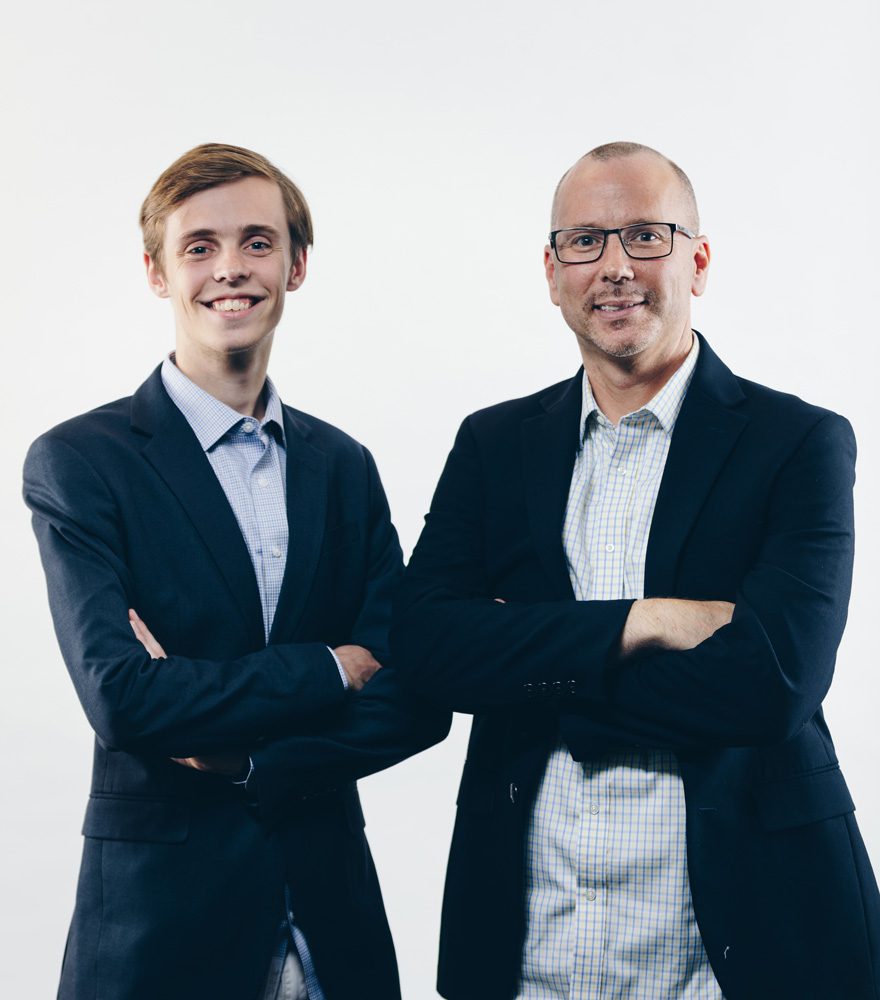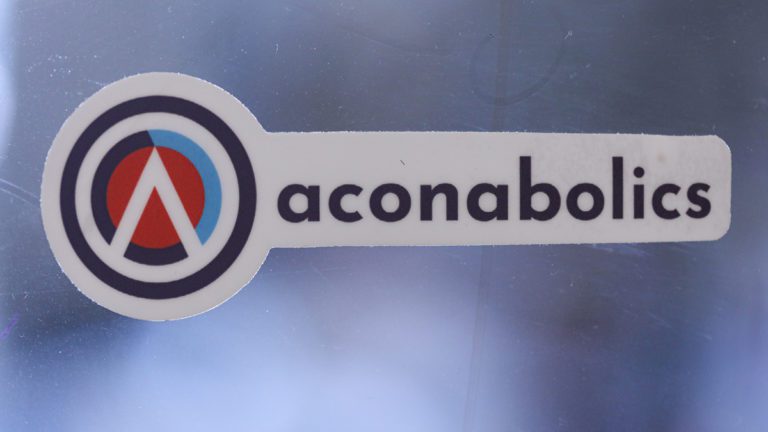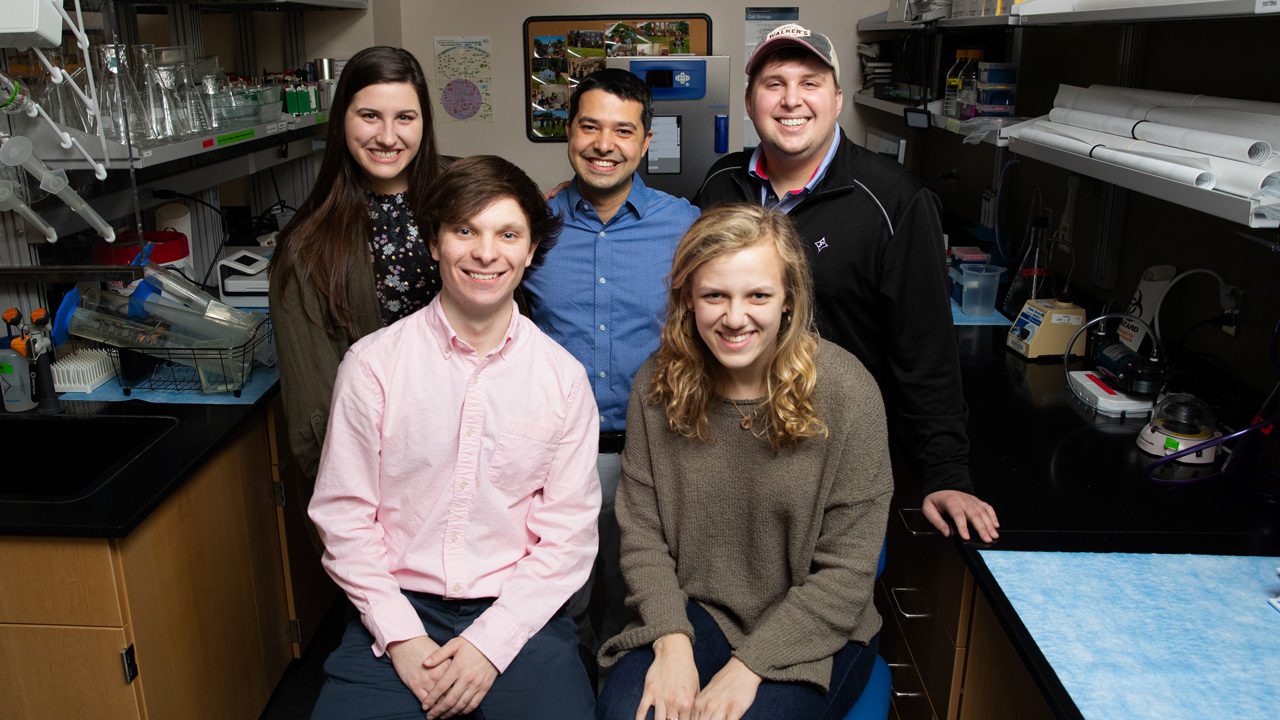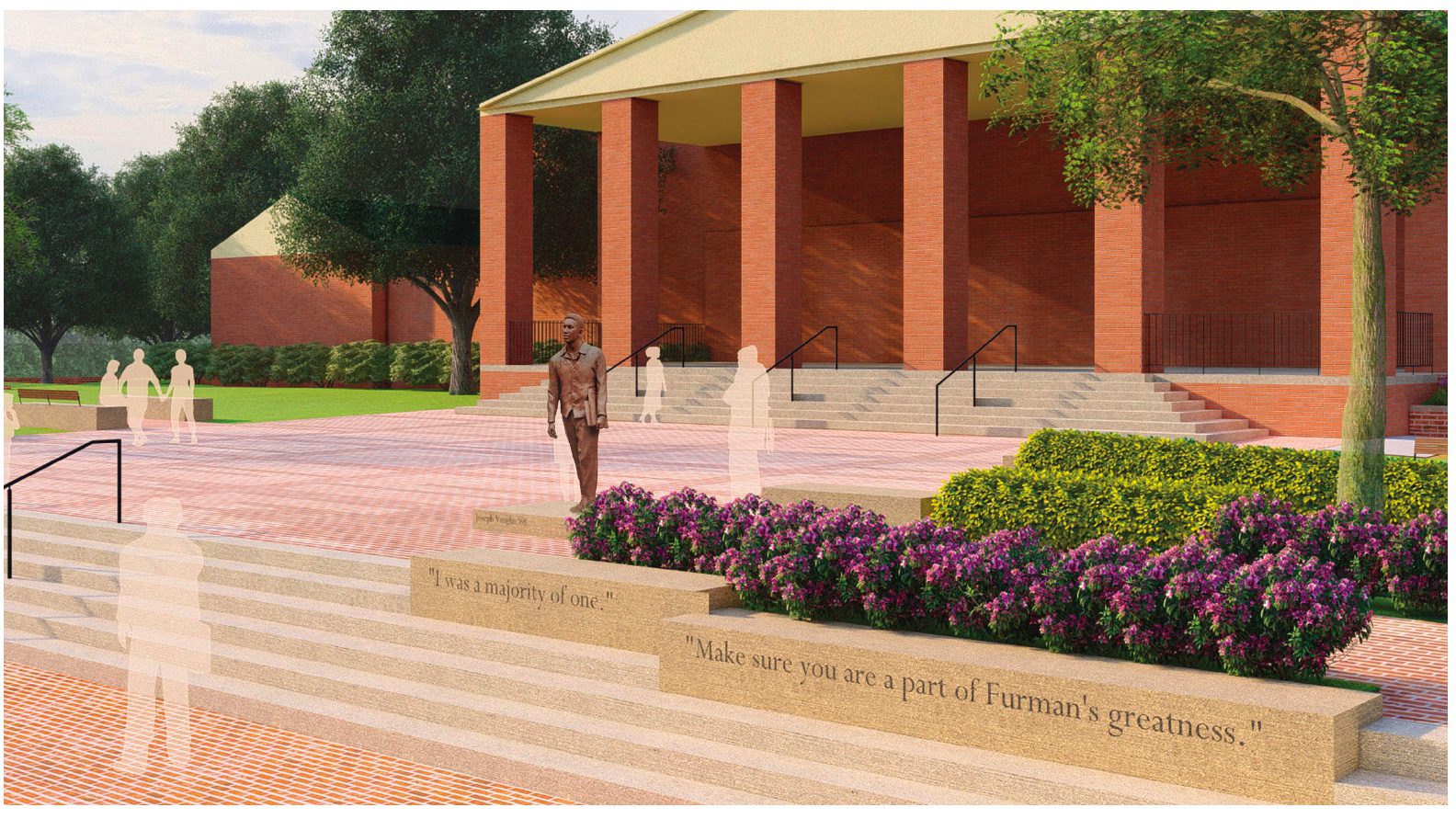
Q&A with Professor of Chemistry
Greg Springsteen and Trent Stubbs ’20
By Ron Wagner ’93

Professor of Chemistry Greg Springsteen and Trent Stubbs ’20 co-founded Aconabolics LLC in 2018, after discovering a revolutionary way to produce molecules critical to metabolic flux analysis, an emerging technology able to diagnose cancer and bacterial infections more rapidly than traditional methods. They have filed two patents for the process.
What makes this discovery so special?
Springsteen: The primary use for these compounds is to allow researchers to see how bacteria or cancer cells process them as food to better understand what’s going on inside the cell. These compounds have been difficult to make, and we’ve developed a new way to make them really efficiently. Many are currently isolated by fermentation, so trying to extract them out of biological mixture can be expensive and it can be dirty.”
How did you make the discovery?
Springsteen: “We were working on a project funded by the National Science Foundation and NASA to try to understand the chemical origins of life, looking at a piece of metabolism that is really fundamental to biology called the citric acid cycle. We got virtually the entire cycle running in a chemical flask without biology, which has some really important implications – not only for potentially understanding the origins of the citric acid cycle but also enabling us to make the intermediates of this citric acid cycle really easily. These intermediates can be very useful, particularly when isotopically labeled.”
Did you know right away it was a breakthrough?
Stubbs: “We didn’t have the realization that this technology could be applied to other fields until later down the road. We were reading papers and finding out that these products we could efficiently produce in a very clean fashion can be used for this medical application as diagnostic agents.”
Why had somebody not already done this?
Springsteen: “We know this chemistry extremely well. Also, there are just lots of discoveries out there to be had. You often get this question from people just entering the research lab, but there are endless things that are easy and crucial to understanding the world around us that just haven’t been figured out yet. In some senses, we’re still in the early stages of science. There’s lots of low-hanging fruit out there.”
How has Furman helped with Aconabolics?
Springsteen: “The LLC has a licensing agreement with Furman, licensing the patents that Furman owns. This allows us to in essence be an incubator company on campus. We have a lab that will be wholly dedicated to this technology, and Furman employed a downtown firm to help with the patents. Neither Trent nor I come from an entrepreneurial background, so having mentors (like the Furman Innovation and Entrepreneurship team) has been crucial to moving this along. Talk about support across the campus – we’ve been getting it from absolutely everybody, and we wouldn’t be able to do this if Furman wasn’t so graciously supportive.”

You spend hours together. What is your personal relationship like?
Stubbs: “With all of the hours we are working, it’s really important to have some downtime. We love playing disc golf and chess and playing catch. We even have a flight simulator in the lab! We can keep each other entertained, and that keeps the science moving forward and keeps us interested and motivated.”
Who wins?
Stubbs: “Disc golf, it’s close. He’s pretty good. Chess, he beats me every time.”
Now that Trent is a student in the Emory University chemistry Ph.D. program, what will happen to Aconabolics?
Stubbs: “(A Ph.D.) has been my goal, and I want to jointly pursue it while advancing Aconabolics. Aconabolics has assured me of my decision to combine my passion for business and science.”
Springsteen: “Long term it’s going to be great for the company. His training will allow him to take the reins after he graduates. During my sabbatical over the next year, I will work on making Aconabolics more self-sustainable and automated.”
What does this experience mean to you personally?
Springsteen: “One of the things that makes undergraduate research fun is bringing bright, creative minds into science, where they can really make a fundamental difference to our understanding of biology and chemistry very early on in their careers. I want them to recognize that they are at the forefront of knowledge, and their contributions based on that knowledge can be huge. They don’t have to wait until they have graduate degrees.”
Stubbs: “It has been truly such an honor to work (with Greg). It’s a really humbling experience to know the research we’ve done has these applications.”
Stubbs and Springsteen’s work was published in Nature Chemistry, one of the world’s most prestigious scientific journals, in October.



